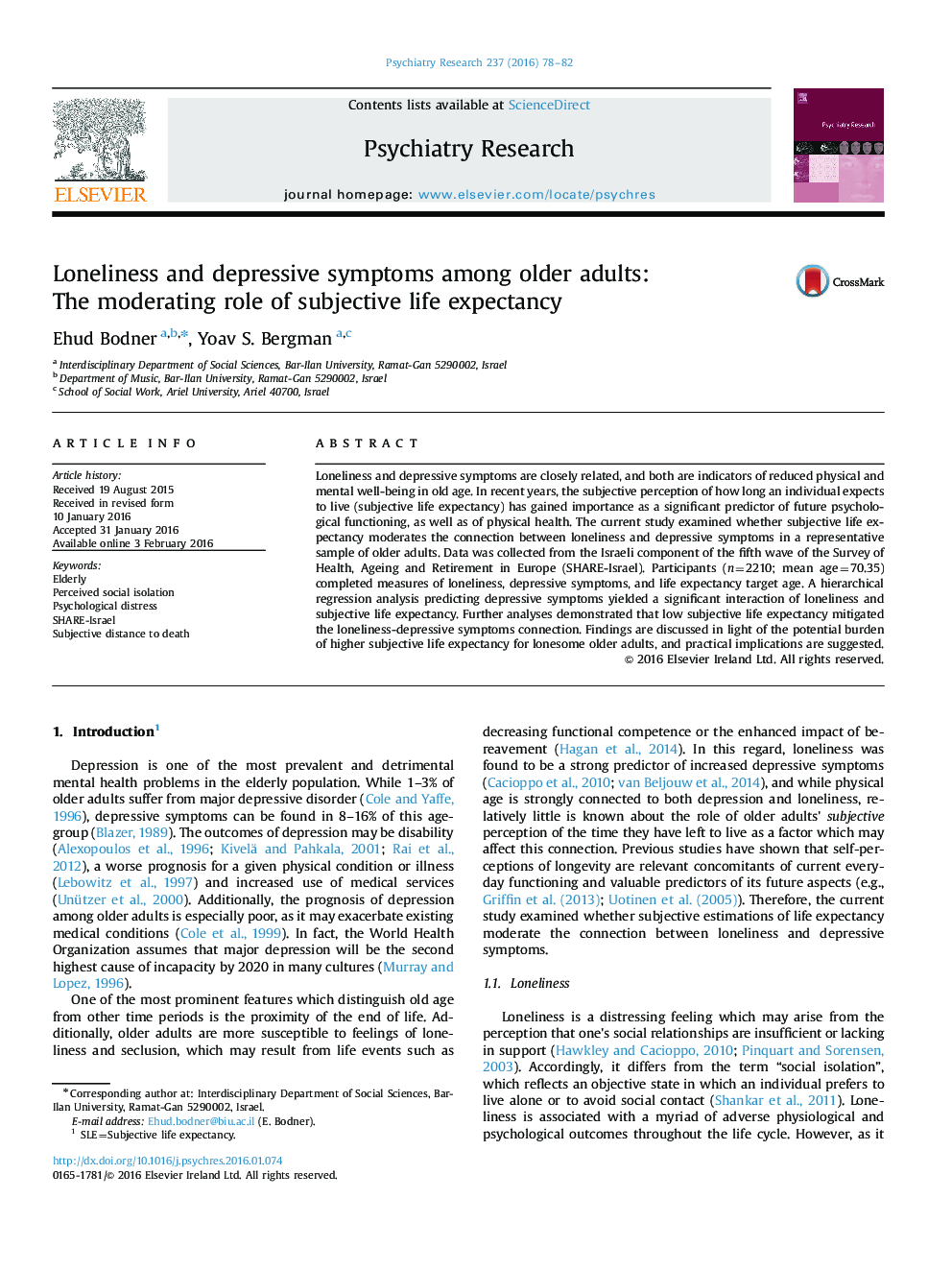| Article ID | Journal | Published Year | Pages | File Type |
|---|---|---|---|---|
| 333095 | Psychiatry Research | 2016 | 5 Pages |
•Subjective life expectancy is an important factor for physical and mental well-being.•Loneliness predicts depressive symptoms in old age.•Subjective life expectancy moderates the loneliness-depressive symptoms link.
Loneliness and depressive symptoms are closely related, and both are indicators of reduced physical and mental well-being in old age. In recent years, the subjective perception of how long an individual expects to live (subjective life expectancy) has gained importance as a significant predictor of future psychological functioning, as well as of physical health. The current study examined whether subjective life expectancy moderates the connection between loneliness and depressive symptoms in a representative sample of older adults. Data was collected from the Israeli component of the fifth wave of the Survey of Health, Ageing and Retirement in Europe (SHARE-Israel). Participants (n=2210; mean age=70.35) completed measures of loneliness, depressive symptoms, and life expectancy target age. A hierarchical regression analysis predicting depressive symptoms yielded a significant interaction of loneliness and subjective life expectancy. Further analyses demonstrated that low subjective life expectancy mitigated the loneliness-depressive symptoms connection. Findings are discussed in light of the potential burden of higher subjective life expectancy for lonesome older adults, and practical implications are suggested.
